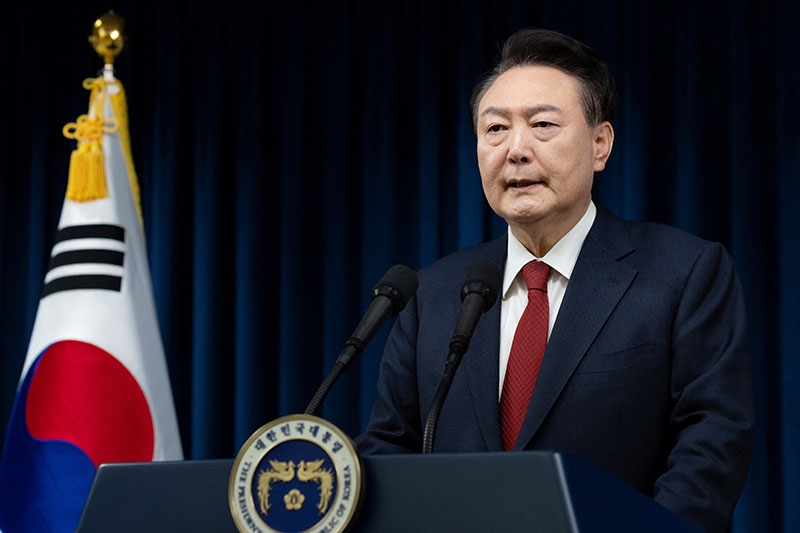South Korea finds itself in the grip of unprecedented political upheaval as police raid the presidential office following President Yoon Suk Yeol’s controversial attempt to impose martial law last week.
The move has triggered widespread outrage, leading to insurrection charges against the president and his allies, with several now under a travel ban.
President Yoon stands accused of treason, a charge that holds no immunity for a sitting president under South Korean law. Investigators have signaled their intent to arrest him if sufficient evidence is uncovered. The nation is teetering on the edge of a constitutional crisis, with the president’s authority now in question as protesters flood the streets demanding his resignation.
In a tragic turn, former Defense Minister Kim Yong-hyun, accused of playing a central role in the martial law declaration, attempted suicide while in custody. Kim is the highest-ranking official arrested in the scandal so far. A justice ministry official confirmed the suicide attempt to parliament, further intensifying the political and social turmoil.
President Yoon has expressed regret over the incident involving Kim but has steadfastly refused mounting calls for his resignation. His position remains precarious as opposition lawmakers gear up for another impeachment vote this weekend, vowing to hold weekly impeachment sessions until he steps down. Last weekend’s impeachment effort failed when members of Yoon’s ruling party boycotted the vote, leaving opposition forces undeterred in their mission.

The declaration of martial law has drawn international attention, with North Korean media branding it an “insane” move by a “fascist dictator.” The sharp rebuke from the North underscores the regional ramifications of South Korea’s internal strife.
As investigators comb through evidence and protesters maintain their presence in the streets, the nation waits anxiously to see whether President Yoon will survive the growing political storm or if his tenure will end in ignominy. The coming days promise to be pivotal in shaping South Korea’s political future, as the country grapples with the fallout of its most significant constitutional crisis in decades.


